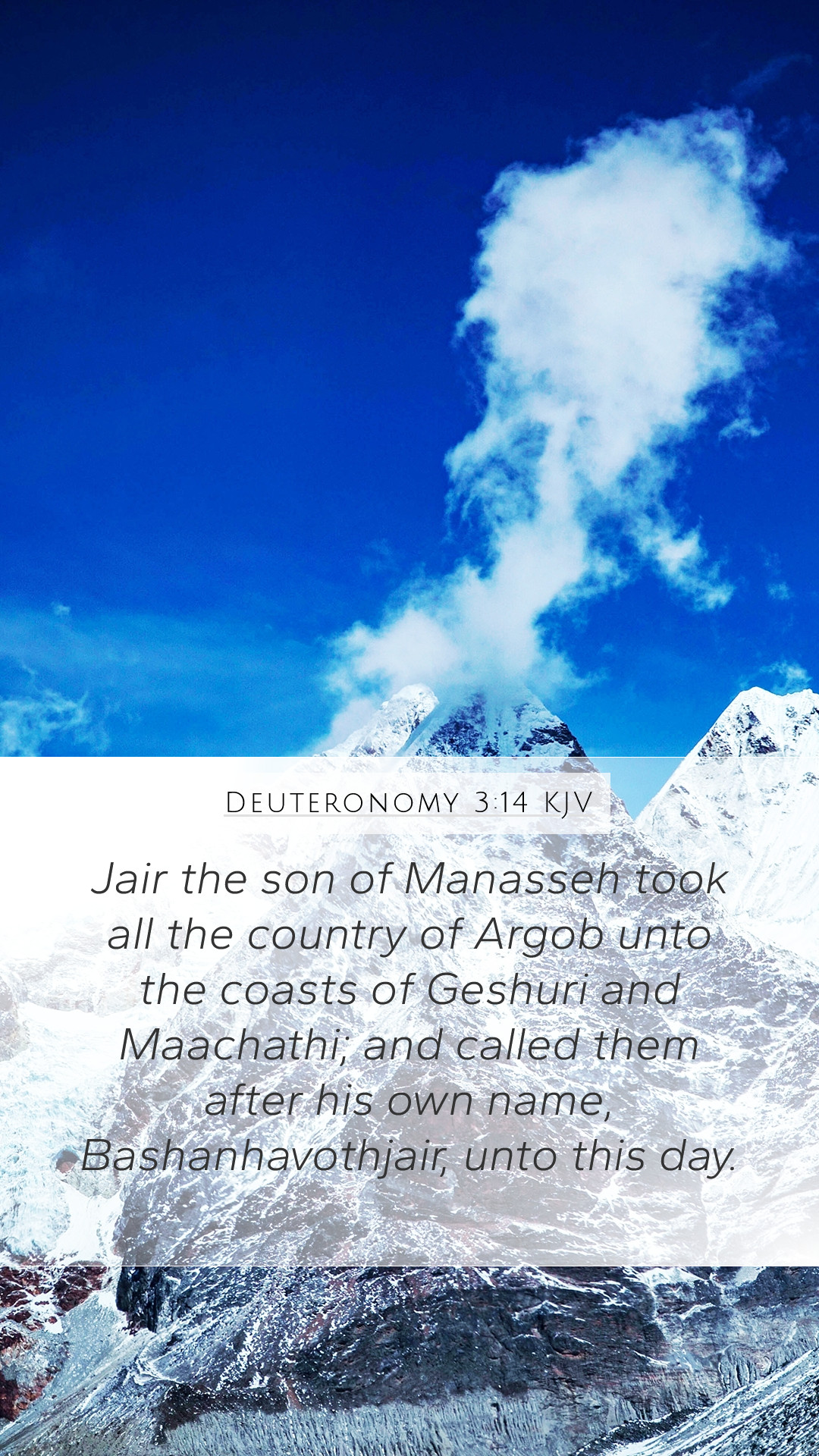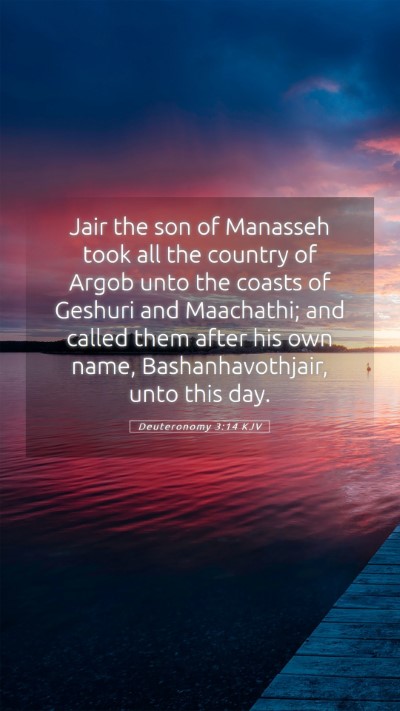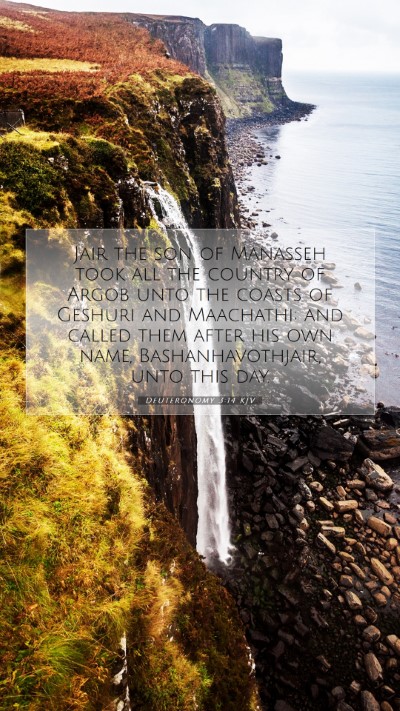Understanding Deuteronomy 3:14
Deuteronomy 3:14 states, "Jair the son of Manasseh took all the region of Argob, which is in Bashan, and called the villages after his own name, Havoth Jair, to this day." This verse holds significant meaning within the context of Israel's history and the distribution of land among the tribes. In this commentary, we will explore the Bible verse meanings and interpretations derived from public domain commentaries, emphasizing the importance of understanding Scripture and biblical exegesis.
Biblical Context
This verse occurs during a critical period when the Israelites are preparing to enter the Promised Land. They have just defeated the kings of the Amorites, and territories are being distributed among the tribes. Jair, a member of the tribe of Manasseh, is noted for claiming and naming this region, illustrating the process of taking possession of the land and establishing a legacy.
Insights from Commentaries
-
Matthew Henry:
Henry emphasizes the significance of Jair's actions, highlighting that he not only took land but established his name in history through the villages he named. This act reflects a successful conquest and the importance of legacy in biblical narratives. He notes that this is indicative of the larger theme of God's promises being fulfilled as the Israelites claim the land.
-
Albert Barnes:
Barnes provides additional context by discussing the geographical significance of Bashan and the region's prosperity. He underscores that Jair's settlement symbolizes the abundance that comes when one takes possession of what God has allotted. Barnes also comments on the lasting nature of Jair's legacy, indicating that the regions named after him still carried his name long after his time.
-
Adam Clarke:
Clarke dives deeper into the Hebrew meaning of the names and their significance. He points out that 'Havoth Jair' translates to 'the villages of Jair,' which signifies not just ownership but also the flourishing communities that arose under his leadership. Clarke emphasizes that naming places after oneself was a way of commemorating personal achievements in ancient cultures, especially in the context of territorial conquest.
Meaning of Bible Verses
The essence of Deuteronomy 3:14 extends beyond mere historical account; it carries important lessons for contemporary readers:
- Claiming Promises: Just as Jair claimed the land, believers are encouraged to claim the promises of God in their lives.
- Legacy and Heritage: The naming of the villages after Jair serves as a reminder that our actions can leave a lasting impact on future generations.
- Faithful Leadership: Jair's leadership in establishing settlements reflects the qualities of a good leader in a faith community.
Applications of This Verse
When reflecting on Deuteronomy 3:14, it is helpful to consider practical applications:
- Personal Reflection: How can you take ownership of the blessings in your life and ensure they are used for God's glory?
- Community Engagement: What legacy are you building within your community or church? Are you leading in a way that reflects God's promises?
Cross References
To gain a deeper understanding of Deuteronomy 3:14, consider the following cross-references:
- Numbers 32:41-42: Mention of Jair and his conquests.
- Joshua 13:30: The allocation of Bashan to the tribe of Manasseh.
- Deuteronomy 2:20-21: The conquest of the land of the giants.
Conclusion
In summary, understanding Deuteronomy 3:14 through various biblical commentaries allows us to appreciate its historical context, the character of Jair, and the spiritual lessons it offers. This verse encapsulates the themes of claiming God’s promises, establishing a personal legacy, and exercising faithful leadership. As we delve into Bible verse meanings and interpretations, let us remember to engage with Scripture in a way that informs our daily lives and strengthens our faith.


